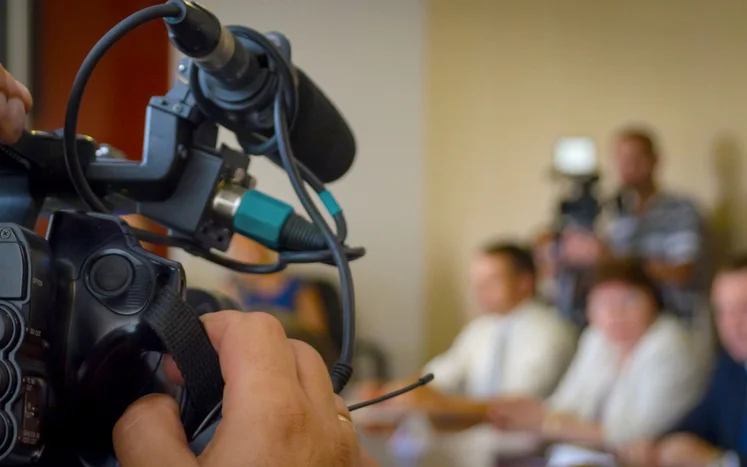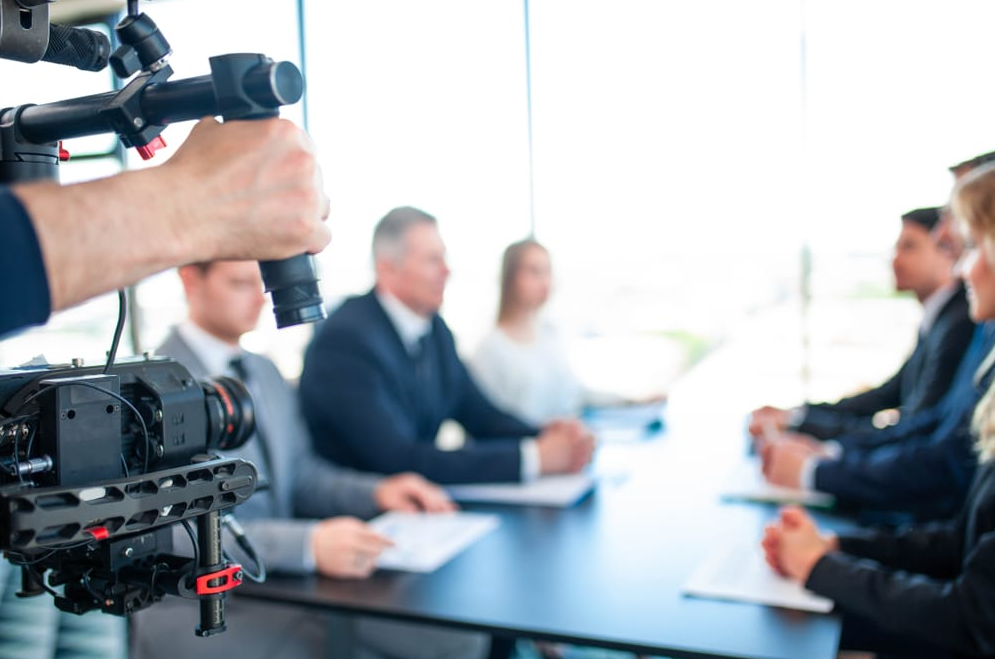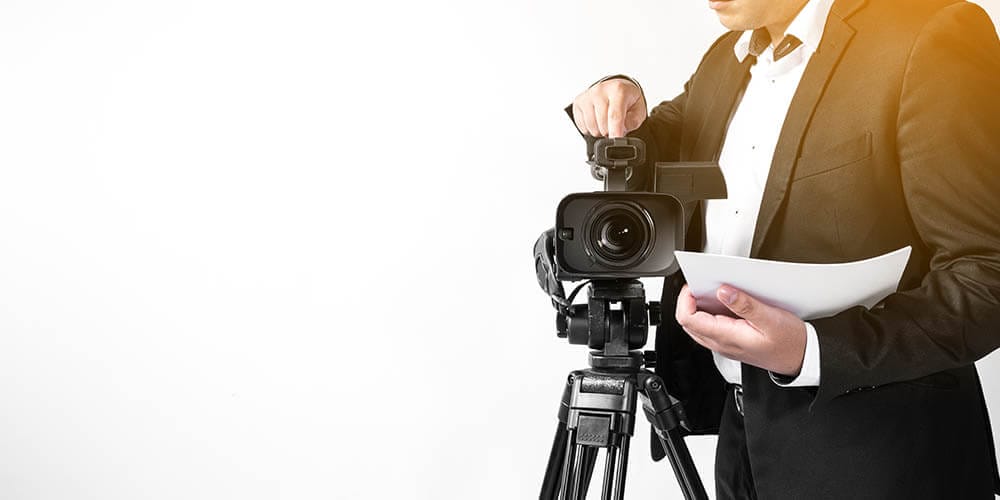The Duty of Lawful Videography in Depositions and Trials
Lawful videography has actually emerged as an essential tool in both depositions and trials, giving a multifaceted method to recording witness testimonies. As legal professionals increasingly acknowledge its value, it prompts a much deeper evaluation of how these visual documents can affect juror perceptions and test end results.

Relevance of Legal Videography
Legal videography plays a critical function in the paperwork and presentation of depositions and trials. This specific field integrates technical skills with legal expertise to develop a trustworthy document of proceedings that can dramatically influence case results. The appearance of legal videography enhances the understanding of witness testimony, enabling jurors and courts to observe not only the talked words but additionally the disposition, feelings, and body language of the witnesses.
Additionally, lawful videography supplies an objective account of events, decreasing the potential for false impression that can occur with created transcripts alone. This visual documentation offers as a vital tool during test discussions, helping with a more clear and more persuasive narrative for both plaintiffs and defendants. The ability to replay video clip sections throughout court proceedings enables lawful groups to stress key points, strengthening their arguments efficiently.
The value of lawful videography extends past the court room; it likewise plays a vital function in preserving proof for future recommendation, whether for appeals or additional lawsuit. Its assimilation right into the lawful process is important for ensuring a fair and accurate depiction of the truths, ultimately contributing to the search of justice.

Refine of Legal Videography
While recording the nuances of depositions and trials, the process of lawful videography involves several crucial steps that guarantee high-quality, precise recordings. Initially, a professional lawful videographer prepares by examining the case products and understanding the particular needs of the deposition or trial. This prep work includes familiarizing themselves with the participants and the context, which aids in capturing important details.
On the day of the recording, the videographer establishes the essential devices, which normally includes high-definition video cameras, microphones, and proper lighting. Ensuring optimal angles and sound quality is essential, as it straight impacts the efficiency of the recording. The videographer interacts with attorneys and participants to establish procedures, making sure that everybody recognizes the recording process.
Throughout the deposition or trial, the videographer thoroughly tape-records the proceedings, paying very close attention to both spoken and non-verbal signs. This consists of recording the attitude and reactions of witnesses and attorneys. After the session ends, the videographer may edit the footage for quality and compliance with lawful criteria, producing a last item that precisely mirrors the procedures for future referral and usage in legal contexts.
Benefits in Depositions
The unification of videography in depositions supplies various advantages that enhance the overall process of collecting evidence. One primary benefit is the ability to record witness testaments with visual and acoustic fidelity, giving an extra exact depiction of the witness's temperament, tone, and body movement. This multidimensional strategy permits attorneys and juries to analyze credibility much more properly than standard written transcripts alone.
In addition, videographed depositions act as an effective device for protecting testimony. Needs to a witness come to be not available for trial, their videotaped deposition can be played in court, making certain that their proof stays available and appropriate. This aspect substantially lowers the danger of shedding essential info that might impact situation results.

Last but not least, videography boosts the overall professionalism and trust of the deposition procedure, instilling self-confidence in clients concerning the thoroughness of their lawful depiction (legal videography). By leveraging innovation, lawful specialists can dramatically boost the effectiveness of depositions
Effect On Trials
In lots of trials, the assimilation of videography can significantly affect the presentation of proof and the jury's perception. Lawful videography catches witness statements and crucial evidence in a vibrant style, allowing jurors to engage with the material on numerous levels. This aesthetic part improves the narration element of a test, supplying context Get the facts and emotional vibration that typical text-based proof might lack.
In addition, video recordings can serve as effective devices for impeachment during cross-examination. When disparities occur in between a witness's previous declarations and their court testament, video clip proof supplies an objective referral that can guide jurors' opinions. This immediacy and clearness can boost the credibility of an event's story while all at once undermining opposing disagreements.

Future Trends in Legal Videography
As we look toward the future of lawful videography, a number of emerging patterns promise to reshape its role within the court. One substantial fad is the combination of synthetic intelligence (AI) in video clip analysis and editing. AI can streamline the process of identifying crucial minutes in recorded depositions, allowing attorneys to rapidly access pertinent web content, thereby boosting performance in situation prep work.
In addition, the surge of digital truth (VIRTUAL REALITY) and boosted fact (AR) modern technologies is anticipated to change how jurors experience evidence. legal videography. By submersing jurors in a substitute atmosphere, these modern technologies can supply a more extensive understanding of intricate situations, causing even more enlightened considerations
In addition, the raising need for remote depositions, increased by the COVID-19 pandemic, will likely proceed. Legal videographers will certainly need to adapt to new software application and systems to ensure top quality recordings in virtual setups.
Last but not least, the expanding internet focus on information safety and security will necessitate stricter methods for keeping and sharing video clip evidence. As the legal landscape progresses, legal videographers have to stay abreast of these fads to keep their importance and effectiveness in the judicial process.
Conclusion
In summary, lawful videography offers an important function in the judicial process, enhancing the integrity of depositions and trials. By capturing the nuances of witness statements, this medium not just preserves crucial proof yet also aids in offering information efficiently to jurors. The value of aesthetic paperwork in examining integrity and assisting in cross-examination can not be overemphasized. As technology proceeds to progress, lawful videography is positioned to further transform its duty within the legal landscape.